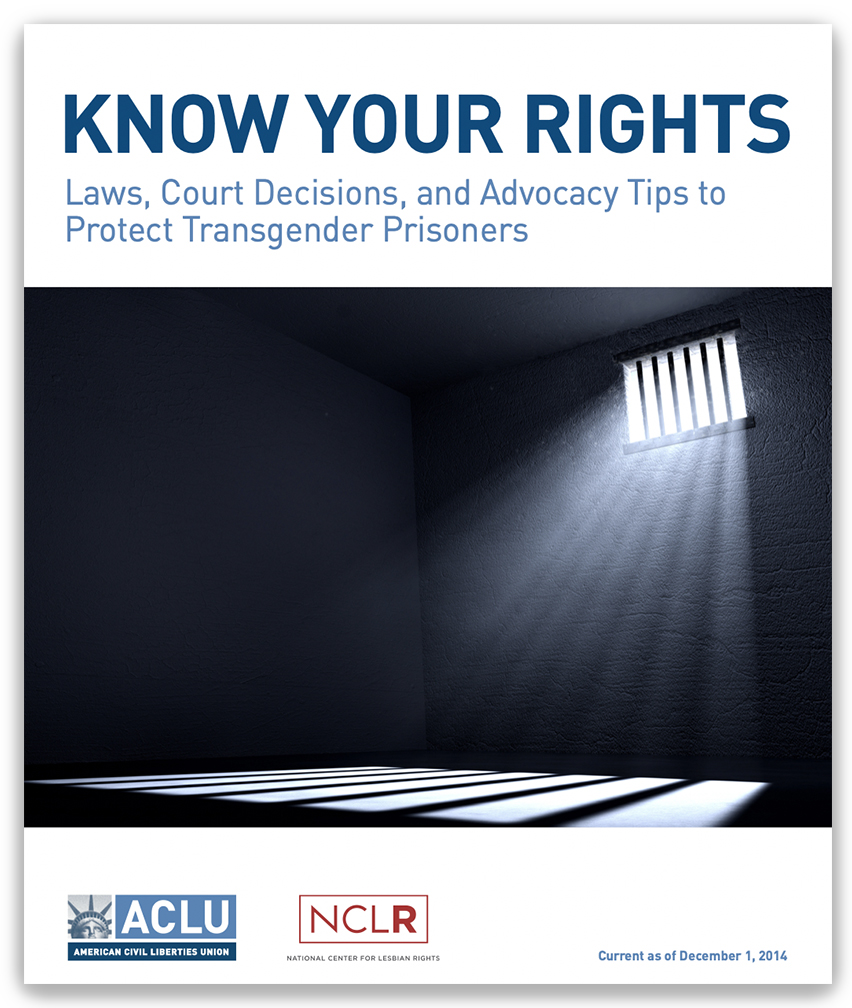We post news and comment on federal criminal justice issues, focused primarily on trial and post-conviction matters, legislative initiatives, and sentencing issues.

Three Circuits Hand Down Late August Sentence Reduction Decisions
 Traditionally, not much gets done in August, and that rule applies even more to the week before Labor Day. People are returning from vacation or grabbing some extra days to tack on the long weekend, while those stuck in the office are afflicted with end-of-summer ennui.
Traditionally, not much gets done in August, and that rule applies even more to the week before Labor Day. People are returning from vacation or grabbing some extra days to tack on the long weekend, while those stuck in the office are afflicted with end-of-summer ennui.
Last week, that rule didn’t apply to three courts of appeal, all of which handed down rulings on the limits of compassionate release under 18 USC § 3582(c)(1)(A) and First Step Act Section 404 sentence reductions. Two were good for prisoners; one was not.
First Circuit Punts: Al Trenkler was convicted of a car bombing 30 years ago. The jury found Al had harbored only an intent to destroy property, but the trial judge inferred from the evidence an intent to kill and imposed a life sentence. But the law required life sentences to be assigned by the jury. The error – which everyone acknowledges – has never been fixed because of procedural roadblocks too complex to be explained here.
Al filed for compassionate release 18 months ago, based on his health and COVID-19 pandemic as well as his claim that questions surrounded his guilt; the fundamental unfairness of his conviction; sentence disparity and the unlawfully-imposed life sentence.
While Al did not sufficiently persuade the district court that questions surrounding his guilt, fundamental unfairness, and co-defendant sentence disparity constituted “extraordinary and compelling” reasons for compassionate release, the court decided the sentencing error did. Noting that Al had no other avenue for relief from the sentencing error, the district court reduced his sentence from life to 41 years.
The government appealed. Last week, the 1st Circuit sent the case back to the district court.
While the appeal was pending, the 1st ruled in United States v. Ruvalcaba that while district courts may generally consider “any complex of circumstances” in deciding that a prisoner should be granted compassionate release, that doesn’t mean that “certain reasons, standing alone, may be insufficient as a matter of law when measured against the ‘extraordinary and compelling’ standard… After all, it is possible that the whole may be greater than the sum of its parts, and reasons that might not do the trick on their own may combine to constitute circumstances that warrant a finding that the reasons proposed are, in the aggregate, extraordinary and compelling.”
 In Al’s case, the Circuit said, “it is clear the district court found the sentencing error constituted an extraordinary and compelling reason warranting a sentence reduction. But its analytical path is susceptible to multiple interpretations when it comes to how it navigated the list of reasons Trenkler offered. On one hand, we can appreciate the possibility that the district court discarded Trenkler’s other proposed reasons one by one but… deemed the circumstances surrounding the sentencing error alone to meet the “extraordinary and compelling” criteria. But we can also see how discarding all proposed reasons except one could represent a singular reason-by-reason analysis, not a review of the individual circumstances overall. In the end, our careful review of the district court’s thorough (but pre-Ruvalcaba) decision leaves us uncertain as to whether it took a holistic approach when reviewing Trenkler’s proposed reasons and ultimately concluding that the sentencing error constituted a sufficiently extraordinary and compelling reason to grant relief.”
In Al’s case, the Circuit said, “it is clear the district court found the sentencing error constituted an extraordinary and compelling reason warranting a sentence reduction. But its analytical path is susceptible to multiple interpretations when it comes to how it navigated the list of reasons Trenkler offered. On one hand, we can appreciate the possibility that the district court discarded Trenkler’s other proposed reasons one by one but… deemed the circumstances surrounding the sentencing error alone to meet the “extraordinary and compelling” criteria. But we can also see how discarding all proposed reasons except one could represent a singular reason-by-reason analysis, not a review of the individual circumstances overall. In the end, our careful review of the district court’s thorough (but pre-Ruvalcaba) decision leaves us uncertain as to whether it took a holistic approach when reviewing Trenkler’s proposed reasons and ultimately concluding that the sentencing error constituted a sufficiently extraordinary and compelling reason to grant relief.”
The 1st decided that “given the importance of the issues and the gravitas of abuse-of-discretion review, we conclude that the prudent approach is to remand to afford the district court the opportunity to reassess the motion with the benefit of Ruvalcaba’s any-complex-of-circumstances guidance.”
![]() 3rd Circuit Reverses Sec 404 Resentencing: Clifton Shields was eligible for a Fair Sentencing Act sentence reduction under Section 404 of the First Step Act. He argued that his rehabilitation and the fact that he couldn’t be found to be a career offender if he were sentenced today (because courts now looked at some predicate offenses differently than they did when he was sentenced) meant his sentence should be reduced from 360 months to time served.
3rd Circuit Reverses Sec 404 Resentencing: Clifton Shields was eligible for a Fair Sentencing Act sentence reduction under Section 404 of the First Step Act. He argued that his rehabilitation and the fact that he couldn’t be found to be a career offender if he were sentenced today (because courts now looked at some predicate offenses differently than they did when he was sentenced) meant his sentence should be reduced from 360 months to time served.
The district court cut his sentence to 262 months, but refused to consider “whether under current law Shields would be considered a career offender” because it believed that “[t]he First Step Act does not permit the court to consider other statutory or sentencing guideline amendments enacted since the date the defendant committed his or her offense.” The district court held that the reduced sentence it was imposing, at the bottom of Cliff’s amended Guidelines range, reflected its consideration of those factors as well as the documents Cliff had submitted as evidence of rehabilitation.
Last week, the 3rd Circuit reversed the district court, holding that district courts are authorized to take into account, at the time of resentencing, any changed circumstances, including post-sentencing developments. Noting that the Supreme Court’s Concepcion decision last June acknowledged “the broad discretion that judges have historically exercised when imposing and modifying sentences, and acknowledged that district courts deciding Sec 404(b) motions regularly consider evidence of… unrelated, nonretroactive Guidelines amendments when raised by the parties,” the Circuit said that while a district court is not required to accept arguments about intervening changes in the law, it should “start with the benchmark Guidelines range recalculated only to the extent it adjusts for the Fair Sentencing Act and should consider Shield’s arguments that he no longer qualifies as a career offender and his renewed objections to the firearm enhancement and the drug weight… used to calculate his Guidelines range.”
![]()
2nd Circuit Outlier: Victor Orena filed for compassionate release, arguing in part that he had new evidence that called into question the validity of his conviction. The district court denied the § 3582(c)(1)(A)(i) motion, refusing to consider the new evidence.
 In a June decision that the 2nd Circuit affirmed again last week, the appellate court upheld the denial. The Circuit ruled that when considering a motion for a § 3582(C)(1)(A)(i) sentence reduction, “a district court does not have discretion to consider new evidence proffered for the purpose of attacking the validity of the underlying conviction in its balancing of the 18 USC § 3553(a) factors. Facts and arguments that purport to undermine the validity of a federal conviction must be brought on direct appeal or pursuant to 28 USC § 2255 or 2241.”
In a June decision that the 2nd Circuit affirmed again last week, the appellate court upheld the denial. The Circuit ruled that when considering a motion for a § 3582(C)(1)(A)(i) sentence reduction, “a district court does not have discretion to consider new evidence proffered for the purpose of attacking the validity of the underlying conviction in its balancing of the 18 USC § 3553(a) factors. Facts and arguments that purport to undermine the validity of a federal conviction must be brought on direct appeal or pursuant to 28 USC § 2255 or 2241.”
The problem with this approach is that a district court must consider the sentencing factors of 18 USC § 3553(a), including whether the sentence reduction will still represent fair and just punishment for the offense. What the defendant ought to have been sentenced to (or what he or she would be sentenced to if sentenced today) seems like the logical starting point for determining whether the reduction being sought remains consistent with the sentencing factors.
When the Circuit is confronted with whether a district court must assume that a sentence that could not lawfully be imposed today is the starting point for measuring consistency with the sentencing factors, we might get a decision that is more like Trenkler and Shields.
United States v. Trenkler, No. 21-1441, 2022 U.S. App. LEXIS 24290 (1st Cir. Aug. 29, 2022)
United States v. Shields, No. 19-2717, 2022 U.S. App. LEXIS 24719 (3d Cir. Sep. 1, 2022)
United States v. Amato, 37 F.4th 58 (2d Cir. 2022)
– Thomas L. Root






















